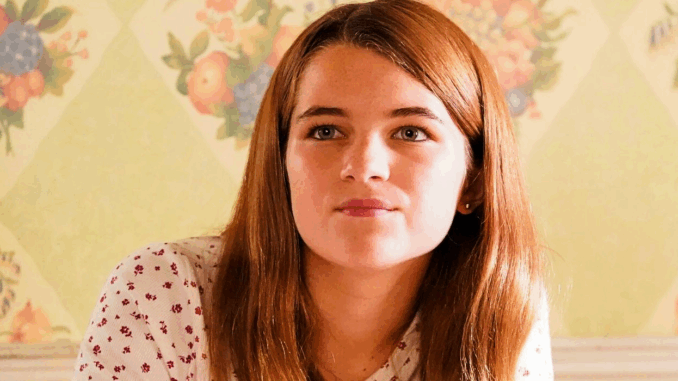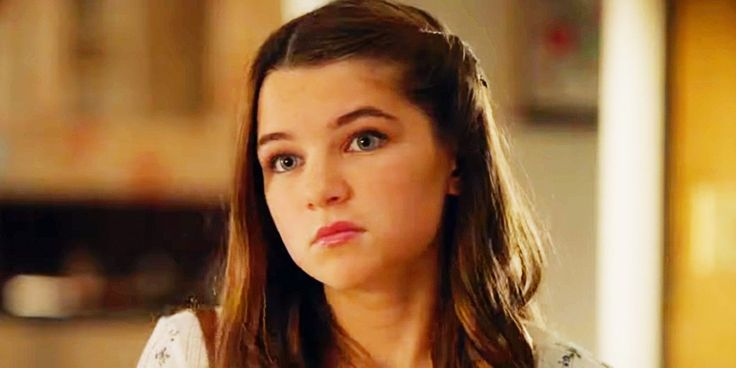
While the title Young Sheldon promises a show about one boy genius, anyone who’s stuck with the series through its seven-season run knows that the real emotional anchor wasn’t always the child prodigy. It was his twin sister — Missy Cooper.
As the final season aired this spring, fans and critics alike have begun to re-evaluate Missy’s role, recognizing her not just as comic relief or sibling contrast, but as the show’s quiet soul — the one who embodied what it meant to grow up normal in an extraordinary family.
The Twin Who Wasn’t Special — But Was Everything
Missy Cooper, played by Raegan Revord, begins the series as a sharp-tongued, sports-loving, no-nonsense foil to her brainy brother. Where Sheldon was winning science fairs and talking to NASA, Missy was navigating the everyday trials of girlhood: puberty, popularity, and being perpetually overlooked.
But therein lay the magic of her character. She was relatable. Her struggles weren’t grand or headline-making — they were human. And in a show dominated by intellect and theory, Missy brought balance through emotion and instinct.
A Mirror to the Family’s Real Challenges
Missy’s strength as a character lies in how much she feels everything — even when she doesn’t always know how to say it.
When George Sr. dies in the final season, it’s Missy who externalizes the family’s buried grief. She rebels. She lashes out. She mourns in the most raw, adolescent way — reminding viewers that loss isn’t just a philosophical problem to solve. It’s pain.
While Sheldon intellectualizes death and Mary turns to prayer, Missy becomes the one who breaks under the weight — and in doing so, reflects what so many viewers feel but rarely articulate.
Her grief isn’t elegant. It’s real.
The Cost of Being “The Normal One”

One of the show’s unspoken themes is how often the needs of “gifted” children overshadow their siblings. Missy doesn’t get special tutors or attention. She doesn’t get her picture in the paper. She gets forgotten — emotionally, if not literally.
But rather than turning bitter, Missy finds power in self-reliance. She forges her identity away from Sheldon’s shadow — even when it means being misunderstood.
As Raegan Revord matured into the role, so did Missy. Her quiet wit became biting sarcasm. Her vulnerability became teenage defiance. By the final season, she was no longer just Sheldon’s twin — she was a character with her own arc, her own pain, and her own fire.
A Breakout Performance
Revord’s performance over seven seasons grew steadily more layered. What began as sass and side-eyes evolved into complex emotion — anger, heartbreak, joy, jealousy. By the final episodes, she was delivering some of the show’s most powerful moments with barely a word.
In scenes like the one where she visits her father’s empty chair at the dinner table, or silently watches Sheldon leave for Caltech, Revord lets Missy speak through silence — a mastery of restraint that many adult actors strive for.
Fans have flooded social media calling for a Missy spin-off or continuation — proof that her story has connected on a deep level.
A Voice for the Overlooked
More than any other character, Missy represented those who are often left behind in the spotlight of genius — the siblings, the daughters, the ones not labeled as “gifted.” Her storyline reminded viewers that value isn’t measured in IQ points, and that emotional intelligence often goes unnoticed.
She was the beating heart of Young Sheldon — the character who grounded the science in feeling, the laughter in sadness, and the theory in reality.
Not Just a Sidekick
As Young Sheldon fades to black, Missy Cooper’s legacy stands tall. She may not have launched rockets or recited string theory, but she gave us something rarer on television: a portrayal of a normal girl growing up under abnormal circumstances — with grace, grit, and gut-punch honesty.
In a show about a genius, Missy reminded us that you don’t have to be extraordinary to matter.
Sometimes, being present is enough.
